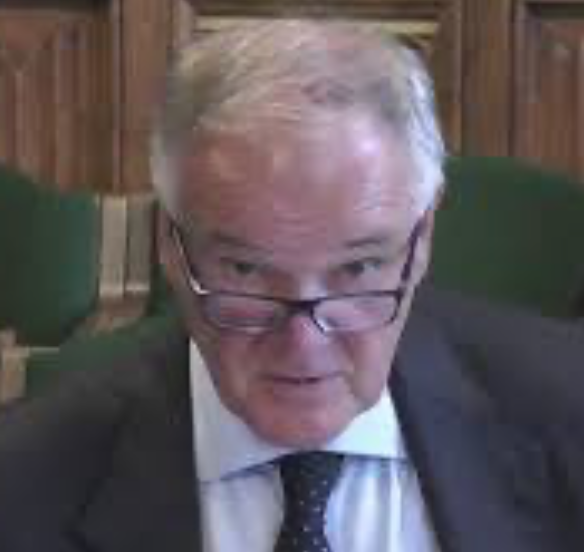
On 18 Feb, the Sunday Times published this extraordinary interview with Henry Staunton, the sacked chair of the Post Office. Staunton said there was a “toxic” culture within the Post Office, alleged that the government had told him to go slow on compensation payments and that the Post Office CEO had written to the Business department saying that hundreds of Postmasters prosecuted by the Post Office were “guilty as charged”.
It was followed in Monday’s Times with a story reporting that the Subpostmaster members on the Post Office board felt “ignored and unwanted”.
At 4.18pm on 19 Feb, an outraged Business Secretary took to the Commons to describe Staunton’s comments as “patently untrue”. You can watch her statement here, or read the transcript of the statement and the subsequent debate here.
Staunton immediately fought back, with a statement attributed to his spokesperson, which I have only been able to find on twitter. I thought it might be an idea to put it up here, for future reference. This version is taken from Robert Peston’s feed and was posted up at 6.39pm on 19 Feb 2024.
Staunton’s Statement
“Firstly, with regard to the comment made to Mr Staunton by the senior civil servant to the effect that he was to stall on compensation payments to Horizon victims and on spend on the Horizon replacement so the government could “limp into the election” with the lowest possible financial liability. Mr Staunton stands by this comment which he recorded at the time in a file note which he emailed to himself and to colleagues and which is therefore traceable on the Post Office Server.
Secondly, Mr Stanton stands by his characterisation of the conversation with the Secretary of State in which he was informed of his dismissal.
Thirdly, with regard to the alleged failure to observe due process in respect of the proposed appointment of a senior independent director, this is once again a mischaracterisation of the situation.
What happened was that the Government via the UKGI had proposed for the post an external candidate with Whitehall experience. Initially the Board acquiesced, but when it came to the Board for discussion, because so much had happened in the intervening four weeks the Board voted 6-2 to express clear preference to appoint a well qualified and in their view better qualified internal candidate, Andrew Dafoor who was already a director, and understood the issues.
The 6 included the chief executive. Of the two dissenters one was the UKGI representative. Mr Staunton informed the Board that they would now have to go through a due process including a nomination committee, Board and shareholder approval process and could not simply impose their preferred candidate. This was all at an early stage in the consultations, and could not be characterised as a breach of due process.
Fourthly, with regard to allegations of bullying behaviour, this is the first time the existence of such allegations have been mentioned, and Mr Staunton is not aware of any aspect of his conduct which could give rise to such allegations. They were certainly not raised by the Secretary of State at any stage and certainly not during the conversation which led to Mr Staunton’s dismissal. Such behaviour would in any case be totally out of character.
With regard to the appointment letter which the Department has chosen to publish, it should be noted that the reference to settlement with claimants is one of a number of issues arising out of the Horizon issue that are listed and not necessarily the most prominent. It should also be noted that if indeed the Secretary of State were concerned about the lack of urgency with which it was being addressed, this was never raised in any of the quarterly review meetings to assess progress against these objectives. These meetings were fully minuted.
Last but not least, it should be noted that the Secretary of State has admitted that a letter was sent by the Post Office CEO to Alex Chalk setting out a legal opinion stating the reason so few sub-postmasters had come forward to have their convictions overturned was because they were “guilty as charged”. That letter was set after the ITV documentary was screened and after the government had set out a pledge to bring forward legislation to exonerate the postmasters.
As chairman, Mr Staunton championed the cause of the postmasters who he saw as the real backbone of the organisation and the best hope for the future. As a number of recent press articles have indicated, historically postmasters were treated with contempt by much of the Post Office hierarchy, those attitudes were deeply entrenched and Mr Staunton fought hard with their representatives on the Board and others including the CEO to change that culture.
Mr Staunton said: “It was in the interests of the business as well as being fair for the postmasters that there was faster progress on exoneration and that compensation for wrongly convicted postmasters was more generous, but we didn’t see any real movement until after the Mister Bates programme.”
Mr Staunton is due to give evidence to the Business Select Committee on Tuesday next week (27 Feb), after the committee hears from Subpostmasters including Alan Bates, Tim Brentnall and Tony Downey and some of the usual suspects from the Post Office and government, including Simon Recaldin and Nick Read.
One highlight might be Ross Cranston, who has been appointed as the independent reviewer of the GLO scheme. We have not heard him speak in public about his role before. But the real fireworks will undoubtedly begin when Staunton takes the chair, on his own, at 1pm. More details here.
The journalism on this blog is crowdfunded. If you would like to join the “secret email” newsletter, please consider making a one-off donation. The money is used to keep the contents of this website free. You will receive irregular, but informative email updates about the Post Office Horizon IT scandal.

Leave a Reply